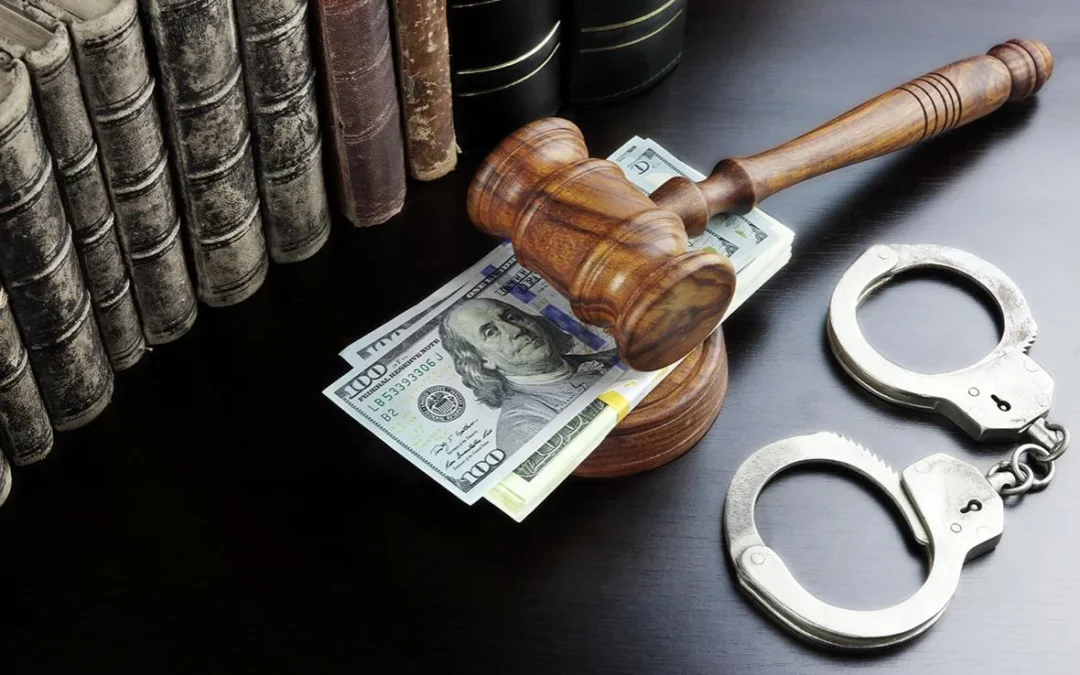What is NCBF’s mission?
We believe in the presumption of innocence and work to end pre-trial detention. We seek to disrupt the criminal legal system that targets and punishes Black and Indigenous people and people of color. We believe that impacted communities are in the best position to determine what their community members need to be free. We support community organizations to create alternatives to pre-trial detention. We seek to reduce harm without propping up the system.
What do we mean by “presumption of innocence”?
You’re probably familiar with our criminal legal system’s tagline, “innocent until proven guilty.” Ideally this means that unless someone has gone through a court case where the judge and jury have found them guilty, they are considered innocent. This concept is a basic human right and at NCBF, we support it.
Our organization believes that people awaiting trial in jail have a similar right to return home to their loved ones and responsibilities until their day in court. They haven’t been proven guilty; what are they doing behind bars? Even so, this tactic of jail time before conviction has been established by legal precedent throughout our country’s history.
Dive deeper with NCBF:
Are people truly innocent until proven guilty in the current system?
Think about the treatment you’ve seen applied to people within the system who haven’t been found guilty. How do police, the media, and the public respond to them?
Many times, folks draw negative conclusions about people who are in jail and cannot pay bail. Incarcerated people have had charges brought against them, but they haven’t been to trial yet or been convicted of any crimes. It’s impossible for them to have been found guilty at this point. Keep in mind that there’s a separate group of people who go to jail but are able to pay bail, so they can walk free while they wait for their court dates. They haven’t been found guilty either, but the major difference is that they have access to enough money for bail. As a result, people are punished with jail time without being found guilty of a crime only because they lack the money to buy their way out.
What is the deserving vs. non-deserving binary?
Some people believe that there are those in jail who deserve to be bailed out because their charges are “milder,” “less violent,” or “not as bad” as some others’. But who is responsible for making this decision?
No group involved with paying bail—the families of those in jail, the alleged victims’ families, the commercial bail bonds, or NCBF—has the power to set someone’s bail or sentence them to jail. That task lies with judges. A judge may decide not to set a bail at all if they consider someone a risk to public safety. In that case, the incarcerated person must stay in jail until their trial. However if a judge decides to set a bail, the person in jail is free to go once that bail payment is made.
The deserving vs. non-deserving binary looks at the supposed severity of someone’s charges to determine if they should be released from jail. It ignores people’s family situations, mental health challenges, economic circumstances, and other factors that could have contributed to their ending up in jail. It’s an unfair metric for deciding who is worthy of freedom.
Again: a person in jail’s ability to leave doesn’t rely on the supposed severity of their charges. It relies on their ability to pay their bail.
At NCBF, we believe that a person is innocent until proven guilty. Deciding whether or not someone “deserves” help to pay their bail is contrary to our mission.
“Our work focuses on counteracting the structural issues of a system that is not founded on guilt or innocence, but on affluence and privilege,” says NCBF Executive Director Becky Errera.
What is NCBF’s approach for choosing whose bail is paid?
NCBF makes decisions about which bails to pay on a case-by-case basis and based on team consensus. Our focus is on reducing harm. Factors that may influence our decisions change over time. These factors can be more all-encompassing (such as COVID-19 outbreaks in jails and the availability of NCBF funds) or specific to the individual client (including but not limited to: a client’s ability to afford the bail amount, their health factors, their pregnancy status, their race, their gender identity, their housing or shelter bed status, whether they’re at risk of losing their job, and any separation of families caused by a client’s time in jail).
NCBF’s ultimate goal is to end pre-trial detention. We do not pay a client’s bail because they “deserve” to be free more than someone else does. We pay it because we oppose the very existence of our cash bail system. Pre-trial detention and cash bail are racist, classist, transphobic, ableist, and harmful to communities. (Read NCBF’s full statement on bail funds’ role in a cash bail system here.)
The deserving vs. non-deserving binary helps these harmful forces to flourish, but only because we give it power. Widely-held conceptions of people in the criminal legal system stand in the way of meaningful change. With that in mind, NCBF invites you to consider: how can we challenge, not enable, these forces of systemic inequality?
Last updated: May 4, 2022

